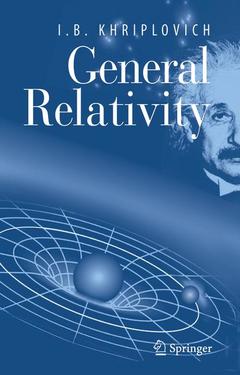Description
General Relativity, Softcover reprint of hardcover 1st ed. 2005
Author: Khriplovich I.B.
Language: English
116 p. · 15.5x23.5 cm · Paperback
116 p. · 15.5x23.5 cm · Hardback
Description
/li>Contents
/li>Biography
/li>
I.B. Khriplovich is Chief Researcher, Budker Institute of Nuclear Physics, Novosibirsk, and Chair of Theoretical Physics at Novosibirsk University. Dr. Khriplovich is a Corresponding Member of the Russian Academy of Sciences. He has been awarded the Dirac Medal ``For the advancement of theoretical physics'' by University of New South Wales, Sydney, Australia, and the Pomeranchuk Prize ``For outstanding contribution to the understanding the properties of the standard model, especially for illuminating work on weak and strong interactions of quarks'' by the Institute of Theoretical and Experimental Physics, Moscow, Russia.




